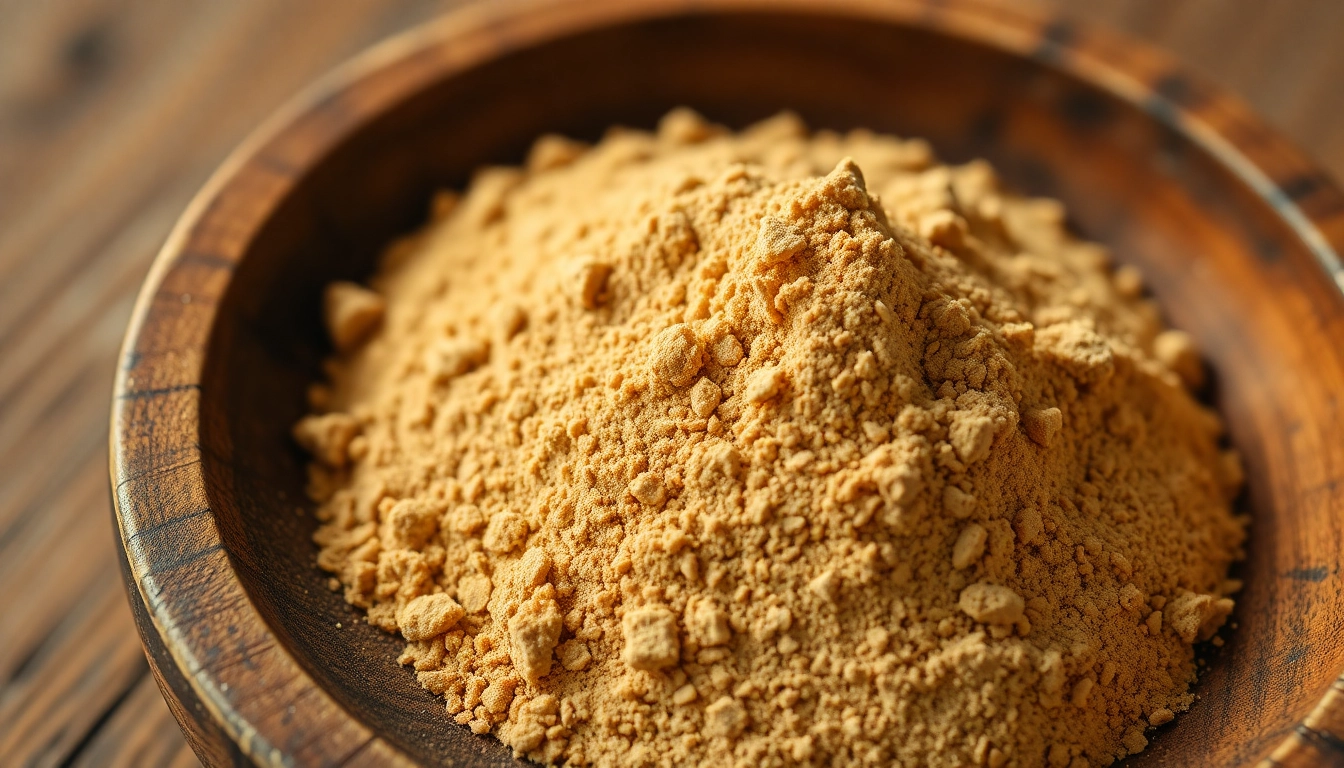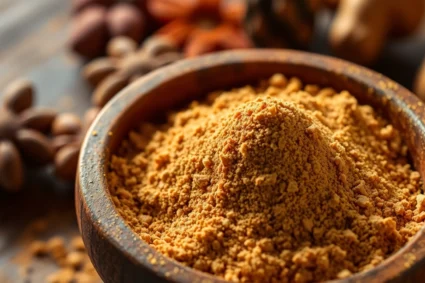
Unlocking the Culinary and Business Potential of Nutmeg Powder
In the vast world of spices and culinary flavors, few ingredients command the respect and versatility of Nutmeg Powder. Revered for its warm, aromatic qualities, nutmeg has been a treasured component in kitchens worldwide for centuries. From traditional recipes to contemporary gourmet creations, this spice elevates dishes, making it a vital element in both home cooking and professional gastronomy. But beyond its culinary appeal, nutmeg powder also holds significant commercial value, especially when sourced from reputable manufacturers who prioritize quality, authenticity, and safety. This article explores the multifaceted aspects of nutmeg powder—its history, health benefits, quality standards, creative uses, storage tips, and opportunities for businesses seeking to incorporate this premium spice into their product lineup.
Introduction to Nutmeg Powder and Its Culinary Significance
Nutmeg powder is derived from the seed of the Myristica fragrans tree, native to the spice islands of Indonesia, particularly the Maluku Islands. Its distinctive aroma and flavor have established it as a cornerstone in international cooking. Historically, nutmeg was valued as an exotic and precious commodity, often traded along routes connecting Asia, the Middle East, and Europe. Today, with advancements in processing and global trade, high-quality nutmeg powder is readily available, offering chefs and food manufacturers an accessible way to infuse a subtle, warm spice into diverse dishes.
Not only does nutmeg enhance flavor, but its versatility makes it indispensable in creating sweet and savory dishes—from creamy desserts like custards and cakes to hearty stews and meat dishes. Its use extends beyond culinary applications to beverages, baked goods, and even medicinal preparations. For businesses involved in spices, understanding how to select and utilize the best nutmeg powder can be a game-changer in delivering authentic, high-quality products to consumers.
Historical and Cultural Uses of Nutmeg Powder
Throughout history, nutmeg has played a pivotal role in trade, culture, and cuisine. In medieval Europe, it was a luxury item, often associated with wealth and status, and was used in medicine, potpourri, and culinary dishes. Cultures across Asia and the Middle East have long believed in its medicinal properties, incorporating it into traditional remedies for digestive issues, insomnia, and pain relief.
In Indian cuisine, especially within the Mughal culinary tradition, nutmeg contributes to rich gravies, biryanis, and spice blends like garam masala. Its prominence in ceremonial and festive dishes exemplifies its cultural significance. As contemporary chefs and food enthusiasts rediscover traditional recipes, the authentic use of nutmeg continues to thrive, bridging centuries of culinary heritage with modern innovation.
Health Benefits and Nutritional Profile of Nutmeg
Beyond its flavor profile, nutmeg boasts several health benefits owing to its rich nutritional composition. It contains essential oils, antioxidants, vitamins (such as B6 and folate), minerals (like magnesium, calcium, and manganese), and phytochemicals that contribute to overall well-being.
- Digestive health: Nutmeg has carminative properties, aiding digestion and relieving bloating and indigestion.
- Anti-inflammatory effects: Its compounds can help reduce inflammation and provide relief from arthritis and other inflammatory conditions.
- Sleep and relaxation: Nutmeg is known for its mild sedative effects, promoting restful sleep when consumed in moderation.
- Antioxidant properties: The spice’s antioxidants combat free radicals, reducing oxidative stress and supporting cellular health.
However, moderation is crucial, as excessive consumption of nutmeg can lead to adverse effects, including hallucinations and toxicity. As a certified manufacturer and exporter, Spice Nest emphasizes safety and purity, ensuring that Nutmeg Powder meets stringent standards for health benefits without compromising consumer safety.
Understanding Quality Standards for Nutmeg Powder
Quality is the cornerstone of trustworthy spice products. For nutmeg powder, key standards include purity, aroma, flavor, moisture content, absence of adulterants, and certifications aligned with international food safety norms. Reputable manufacturers adhere to certifications such as ISO, HACCP, and Food Safety Standards like FSSAI in India.
High-grade nutmeg powder should be free from contaminants such as mold, dust, or extraneous residues. It must retain its characteristic aroma and flavor profile, which indicate freshness and proper processing. Proper grading also involves selecting mature, high-quality seeds and employing minimal processing to preserve active compounds.
At Spice Nest, rigorous quality control measures, advanced grinding technology, and compliance with international standards ensure that our nutmeg powder remains authentic, safe, and superior in every batch. Certification and traceability further guarantee product integrity, helping consumers and businesses to trust the supply chain.
Choosing the Right Nutmeg Powder for Your Recipes
Factors Affecting Nutmeg Powder Quality
When selecting nutmeg powder, consider factors like aroma intensity, granule uniformity, color, and packaging. Freshly ground nutmeg powder usually exhibits a warm, spicy aroma that persists for months if stored properly. A dull or stale scent suggests older stock or poor storage conditions. Uniform grind size ensures even distribution in recipes, enhancing taste and texture.
Authentic vs. Imitation Nutmeg Products
Counterfeit or imitation spice blends often contain fillers, artificial flavors, or lower-quality seeds. Authentic nutmeg powder from trusted manufacturers will be 100% pure, organically grown (if applicable), and free from additives. Labels should specify origin, processing methods, and certifications.
How to Identify Fresh and Pure Nutmeg Powder
Indicators of fresh nutmeg powder include a vibrant aroma, bright color, and free-flowing granules. Authentic products will also have consistent particle size and a natural, spicy scent without chemical after-notes. Conducting a simple sniff test and checking labels for certifications can help verify purity. When in doubt, purchasing from established manufacturers like Spice Nest ensures quality.
Creative Ways to Incorporate Nutmeg Powder in Cooking
Spicing Up Desserts and Beverages with Nutmeg
Nutmeg’s warm, sweet aroma makes it ideal for desserts such as custards, pies, cakes, and puddings. Sprinkle it over hot beverages like tea, coffee, or mulled wine to add depth and aromatic complexity. Incorporate it into frostings and whipped cream for enhanced flavor profiles. For a festive touch, blends of nutmeg with cinnamon, cloves, and allspice can create signature spice mixes.
Savory Dishes Enhanced by Nutmeg’s Warm Flavor
In savory cuisine, nutmeg complements creamy sauces, mashed potatoes, and vegetable casseroles. It balances flavors in béchamel, pasta fillings, and meat marinades. Indian dishes such as Mughlai curries and biryanis utilize nutmeg to enhance richness and aroma. Its subtle flavor also works well in vegetarian dishes, offering complexity without overpowering the ingredients.
Making Homemade Spice Blends with Nutmeg
Creating custom spice blends, like garam masala or pumpkin spice mix, benefits from the inclusion of nutmeg. Combining ground spices with precise ratios yields versatile seasoning options for multiple recipes. Experimenting with quantities allows chefs to tailor flavors, resulting in signature blends that set products apart in the marketplace.
Storage and Handling Tips for Nutmeg Powder
Best Practices for Preserving Freshness
Nutrient content and aroma of nutmeg powder degrade over time if not stored correctly. Keep the spice in airtight, opaque containers away from direct sunlight, heat, and moisture. A cool, dry pantry or spice cabinet is ideal. Avoid exposure to air, which oxidizes essential oils, diminishing flavor and quality.
Extending Shelf Life and Maintaining Aroma
In addition to air-tight containers, employing vacuum sealing or storing smaller quantities reduces exposure to environmental factors. Regularly check for clumping, mold, or discoloration—signs that the spice has deteriorated. Label storage containers with purchase dates to track freshness.
Tips to Avoid Clumping and Moisture Damage
Adding a moisture absorber or silica gel sachets inside the container can prevent clumping. Ensure that scooping utensils are dry before use to avoid introducing humidity. Proper handling during transfer and storage sustains the spice’s aroma, flavor, and shelf life.
Boosting Business with Quality Nutmeg Powder Supply
Partnering with Trusted Nutmeg Powder Manufacturers
For businesses looking to incorporate high-quality nutmeg powder into their product range, partnering with established manufacturers such as Spice Nest is essential. A reliable supplier ensures consistent quality, adherence to safety standards, and timely delivery. Transparency in sourcing and processing methods enhances brand credibility.
Export Opportunities and Market Trends
The global demand for authentic, organic, and certified spices is rising. Nutmeg powder, especially when labeled as organic or ethically sourced, appeals to health-conscious consumers and premium markets. Export opportunities are abundant in regions emphasizing natural and traditional ingredients, offering substantial growth prospects for manufacturers and exporters.
Meeting International Food Safety and Certification Standards
Complying with international standards such as ISO, HACCP, and FSSAI certifications not only ensures safety but also opens doors to global markets. Traceability, quality assurance, and organic certification provide a competitive edge. Spice Nest’s commitment to rigorous quality controls exemplifies best practices for companies aspiring to lead in the spice export industry.














